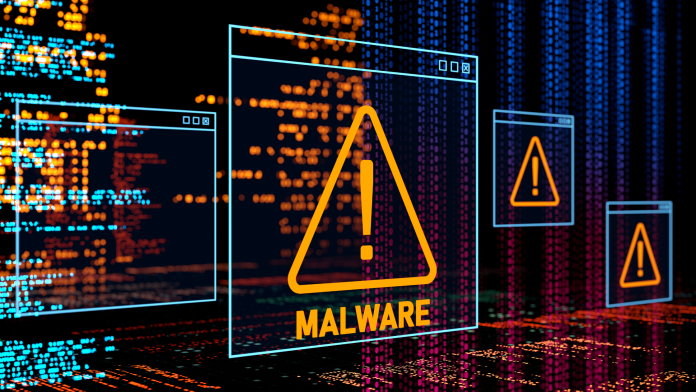Online threats grow each year, and everyone in San Antonio must stay alert. From fake emails to hidden software, bad actors use many tricks to steal data or money. This guide explains the common threats facing local users and offers clear steps to protect yourself. You will learn how cybersecurity experts in San Antonio fight attacks. You will also see why quick data recovery plans are important when things go wrong.
Understanding Phishing Attacks
Phishing is the most common online scam. Attackers send fake emails or texts that look real. They pretend to be banks, stores, or city services in San Antonio. Their goal is to trick you into sharing passwords or credit card details.
- How it works: You open an email that looks like it is from your bank. The message asks you to click a link and log in. The link leads to a fake site.
- Signs to watch for: Check the sender’s address. Does it match the real company? Look for spelling errors or odd URLs. Be wary of urgent language like “Act Now!”
- Simple tips: Hover over any link before you click. Never share personal data by email. Use a spam filter to block fake messages. These steps will boost your cybersecurity right away.
Common Malware Threats
Malware is software made to harm your devices. It can delete files, spy on your activity, or lock you out of your data. San Antonio users see these main types of malware:
- Viruses attach to files and spread when you open them. They can corrupt or delete data.
- Ransomware locks all your important files. Attackers demand money to free your data. Local shops and offices in San Antonio have paid thousands to recover files.
- Spyware hides on your device. It watches your online moves and sends sensitive data to hackers.
To fight malware, follow these steps:
- Install trusted anti-malware and antivirus tools. Keep them updated.
- Update your operating system and apps the moment new patches come out.
- Never download files from unknown websites or pop-up ads.
These habits form the core of cybersecurity in San Antonio, strategies used by top firms in the city.
Best Practices for Strong Defenses
Good defense starts with simple habits. Whether for home or work, follow these best practices:
- Use Strong, Unique Passwords
Create a different password for every account. Long phrases or random words work best. A password manager can help you remember them all.
- Enable Multi-Factor Authentication (MFA)
MFA adds a second step, like a code sent to your phone. Even if a hacker steals your password, they cannot log in without that code.
- Keep Software Current
Turn on automatic updates for your computer, phone, and apps. Updates fix security holes that attackers can use.
- Secure Your Wi-Fi Network
Change your router’s default password the moment you set it up. Enable the strongest encryption your router offers, such as WPA3.
- Back Up Your Data
Store copies of your files offline or in the cloud. Having a backup is key to fast data recovery in San Antonio when a problem arises.
These steps are simple but powerful. They match the core advice from local cybersecurity consulting services teams.
Role of Cybersecurity Consulting Services
When threats grow more complex, local firms can help. Cybersecurity consulting services in San Antonio guide businesses and individuals through every step:
- Risk Assessment
Experts test your systems to find weak spots. They do mock attacks and drills to see where you are at risk.
- Solution Design
Consultants set up firewalls, secure network layouts, and encryption systems. They tailor each solution to your needs.
- Employee Training
Staff learn to spot phishing emails, choose strong passwords, and follow safe habits. Training lowers the chance of human error.
- Incident Planning
A clear plan helps you react fast if an attack happens. You know who to call, what steps to take, and how to limit damage.
Working with a trusted consultant raises your overall cybersecurity score. It also ensures your defenses stay up to date.
Importance of Data Recovery Services
No defense is perfect. If a breach or hardware failure happens, you need help fast. That’s where data recovery services in San Antonio come in:
- Fast File Restoration
Recovery experts use special tools to retrieve lost or locked data. They can restore files after a ransomware attack or disk crash.
- Low Business Disruption
Quick recovery means you spend less time offline. Your work goes on, and your personal files come back.
- Backup Strategy Review
After recovery, experts review your backup plan. They suggest on-site and cloud backups to prevent future loss.
By combining strong backups with professional data recovery in San Antonio teams, you make sure that even a worst-case event won’t stop you.
Conclusion
San Antonio residents face many cyber threats from clever phishing to harmful malware. The good news is that simple habits and expert help can keep you safe. Embrace the four pillars of cybersecurity and recognise phishing, block malware, follow best practices, and plan for recovery. When you partner with cybersecurity consulting services and reliable data recovery services in San Antonio, you build a strong defense that stands up to modern threats. Stay informed, stay alert, and protect your digital world in the Alamo City.


